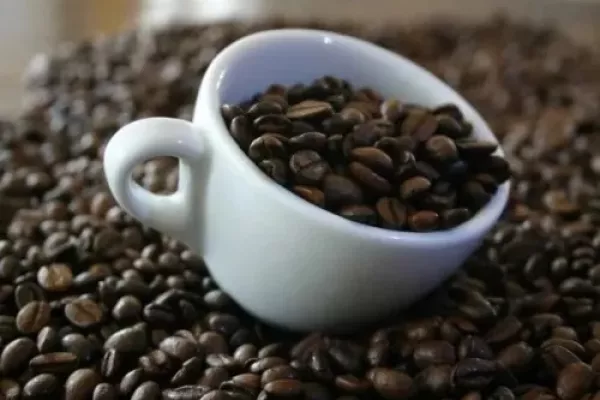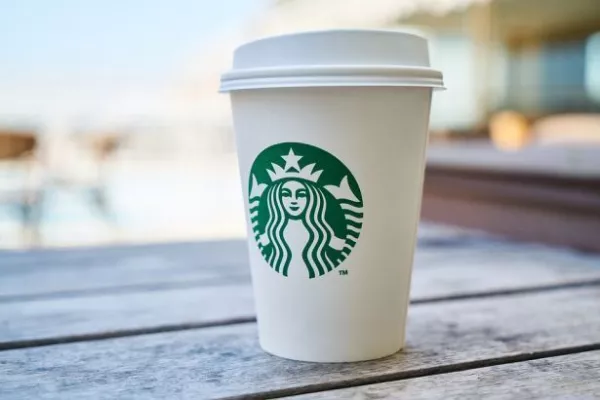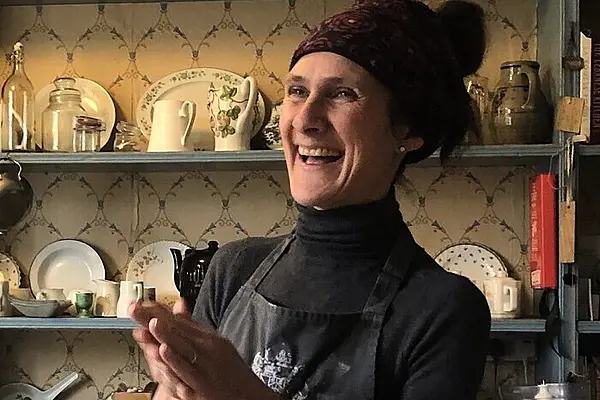Last week, Samir Desai made his way to a warren of industrial buildings in south London looking for an answer to a crucial question: How is Brexit affecting his small-business customers?
What he found was some surprisingly positive effects of Britain’s decision to quit the European Union—and an entrepreneur who’s as deeply worried as he is that departure from the bloc will be a loser over the long term.
Desai, chief executive officer of Funding Circle Ltd., a lender that arranges loans to small companies, is confronting a swirl of questions as Brexit reshapes the British economy. Funding Circle, one of four companies Bloomberg is tracking through the Brexit process, may face big changes as the government negotiates its divorce and seeks new trade agreements with nations around the world. If inflation or declining growth or flagging consumer confidence are affecting his borrowers, Desai wants to know about it. After all, if Brexit is hurting his customers then that may put pressure on his own business.
So on a drizzly morning, Desai ducked into a warehouse surrounded by building supply yards just east of Wimbledon. A sign on the front read “By the Horns Brewing Co.” Inside, the scent of toasted malt filled the air. A bar equipped with 14 taps for Hopslinger IPA, Stiff Upper Lip pale ale and other beers ran the length of one wall. Another item on offer: A Brewtini, which combines cold-brewed coffee and spirits. “I'll never drink Fosters again,” read a note scribbled on a chalkboard by someone called Mike the Trucker.
Co-founded by Alex Bull and Chris Mills, six-year-old By the Horns Brewing has become one of the rising stars in London’s thriving craft beer industry. In 2011, there were just 10 breweries in the British capital. Now more than 100 are operating. Every weekend, By the Horns’ tap room fills up with aficionados who discovered its offerings at beer festivals or in Marks & Spencer Group Plc’s food halls.
Since 2013, By the Horns has borrowed £119,000 on Funding Circle’s online platform to purchase fermentation tanks, bottling equipment and cask washing machines. Bull and Mills are eyeing their biggest capital expenditure to date even as uncertainty around Brexit looms.
Bull, the head brewer and production manager, warmly greeted Desai. Each man looked his part. Desai, the fintech luminary who converses with the likes of Chancellor of the Exchequer Philip Hammond, was clad in a blazer, a white dress shirt and brown-leather brogues. Bull, who sports a beard and squeezes hops between his fingers to assess their aromatic notes, wore a T-shirt, shorts and sneakers. But the two men had made the same life-changing decision: they quit their corporate jobs to start their own enterprises.
Eager to share his handiwork, Bull opened a tap on a stainless steel tank holding the first unfermented stage of a Brazilian-inspired brew he calls Samba King. He handed Desai, 34, a pint glass filled with a warm amber liquid that tasted like sweet grassy tea. “We’ll add the hops to this later to give it some bitterness,” said Bull, 31. “And then we flavor it with lime and lemongrass.” Desai took a sip and smiled. “Yes, it’s very sweet,” he said.
Desai then asked to see the equipment Bull bought with the help of Funding Circle. The brewer led Desai into an adjacent warehouse and showed him eight stainless steel fermentation tanks from China standing about 10 feet high, filled with a summery IPA. In 2015, By the Horns used the online marketplace to borrow 41,000 pounds to purchase the tanks. The loan was funded by the European Investment Fund, an arm of the EU. , and KfW, a German development bank. Two years later, the company tapped Funding Circle’s site again for 78,000 pounds for other equipment. This time the cash came from 1,514 investors.
Bull told Desai that the company, which produces about 15,000 bottles of beer per week, has been boosting exports to Sweden, Norway, Italy and even Russia. The pound has underperformed every major currency since the day of the Brexit vote, making British goods cheaper overseas.
“We would have had half as many exports if the vote had gone the other way,” Bull said.
Even so, Bull, who voted for Britain to remain in the EU, is anxious about Brexit’s long-term impact on the economy. The pound’s decline is already making imported beermaking equipment, much of it made in Belgium and the U.S., more expensive. And the craft beer revolution in North America, Australia and now Europe has fueled so much demand for choice hops that prices for the flavor-packed flowers from New Zealand and North America were skyrocketing even before the vote.
Bull is hopeful big shifts in trade policy won’t affect a niche industry like craft beer. He said he was dismayed by Britain’s choice and the infighting and chaos that’s clouded the government’s approach to Brexit so far. Last week, Prime Minister Theresa May ended a debate among her ministers when her office said EU nationals would not be entitled to free movement to the UK after it leaves the bloc in March 2019.
“The whole process has been stupid and embarrassing for the UK,” Bull said. “Now it’s a political nightmare.”
Desai, a fellow “Remain” voter, has also been navigating the crosscurrents of Brexit in his business. Funding Circle generated £723 million in loans between January 1 and July 31, a 90 percent jump from the same period in 2016. While the company has drawn most of its funding from investors, it’s also originated about 10 percent of its loans with money from government-backed sources, such as the British Business Bank. The very week of the Brexit referendum last June, Funding Circle secured 100 million pounds from the European Investment Fund, an arm of the EU. Desai fears Brexit will cut off those funding channels.
Walking back to the bar, Desai asked Bull what’s next. The brewer said he and his partner, Mills, want to start canning their products—a cheap and popular distribution method for craft beermakers—and are exploring the purchase of machinery to set up an assembly line.
“At some point next year we might have to do a big leap,” Bull said.
“You’re going to get too big for us,” Desai replied with a laugh.
News by Bloomberg - edited by Hospitality Ireland









